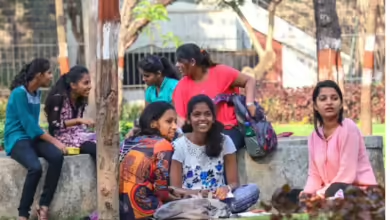Establishments in Higher Education Must Take Action To End Ragging
New Delhi: To combat the problem of ragging in higher education institutions, the University Grants Commission (UGC) has developed policies. The commission said, “These regulations are mandatory, and all institutions are required to take necessary steps for their implementation,” in an official announcement posted on the UGC website. We will take severely any infraction of these rules.”

The commission has instructed the institutions to strengthen their anti-ragging measures, including creating an anti-ragging squad and committee, establishing an anti-ragging cell, installing CCTV cameras at strategic locations, holding anti-ragging seminars and workshops, updating all websites with the complete contact information of the nodal officers, installing alarm bells, etc.
Additionally, the schools must identify issue spots, provide frequent guidance to students, and include a warning against ragging in their electronic prospectuses and informational pamphlets. Additionally, institutions are required to undertake unannounced inspections of dorms, bus stops, rest areas, canteens, hostels, and student housing.
HEls/Councils are required to carry out the following in accordance with the directives of the Anti-Ragging Monitoring Committee established by the Supreme Court of India:
The UGC Regulations’ mentor-mentee approach aims to prevent ragging in higher education institutions.
In order to build strong cases against those who engage in ragging, institutions should arm their Anti-Ragging Cells and Anti-Ragging Squads with legal advice.
The National Anti-Ragging Monitoring Committee will contact the college principal and university registrar in instances of severe ragging and suicide to discuss non-compliance with UGC regulations against ragging.
Every Council or Regulatory Body that receives a report of a significant incident involving a suicide or death shall form a committee to investigate the matter further, even if the case is still being investigated by law enforcement. It is also recommended that the Regulatory Bodies/Councils choose a legal representative for the case.







